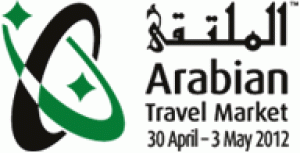Boom in Middle Eastern tourism set to be explored by Arabian Travel Market

Two thirds of the space at Arabian Travel Market 2012 has already been allocated, underscoring the importance of the multi-billion outbound travel market in the Middle East.
With a rising population and increasing disposable incomes especially in the GCC countries, destinations in Europe as well as Asia are now homing in on the sector; tourism in the Middle East could top $20 billion annually within the next 20 years, according to the World Tourism Organisation (WTO).
Consistent with that point of view, Arabian Travel Market 2012, which takes place at the Dubai International Convention and Exhibition Centre from April 30th - May 3rd, has witnessed a surge in enquiries.
“The region is not only one of the fastest growing inbound markets, but for some, more crucially, it is one of the fastest growing outbound markets,” explained Mark Walsh, group exhibition director, Reed Travel Exhibitions, organiser of Arabian Travel Market 2011.
“We have received bookings from all five continents of the world reconfirming the importance of this regions outbound tourism potential.”
The WTO argues an additional two million Arabs will travel abroad within the next twenty years, taking its total of outbound tourists to 37 million, spending an estimated $20 billion and accounting for 2.2 per cent of global outbound travel, a rise of 0.7 per cent.
“Those numbers may seem modest, but it is a case of quality not quantity with travellers from this region,” added Walsh.
“According to the WTO, the average tourist from the UAE spends $22,000 a year on flights and accommodation alone, totalling $6.6 billion annually spent on outbound travel.
“Saudi Arabia’s market is worth an estimated $4.8 billion.”
The 2011 edition of the leading travel exhibition in the Middle East, accommodated 2,236 exhibitors covering over 20,000 square metres and attracted more than 22,000 visitors.

